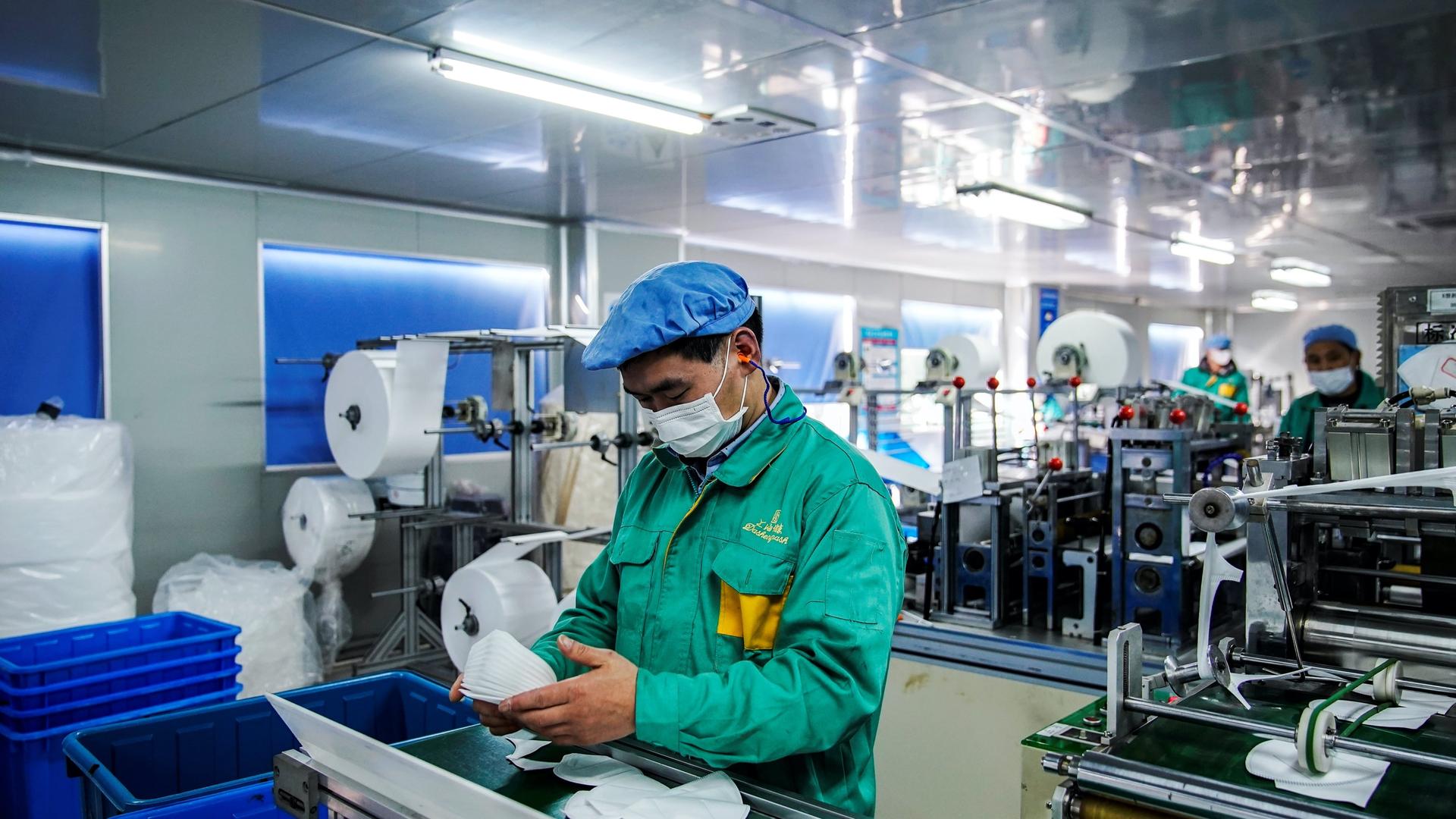At a factory on the east coast of China, Cameron Johnson tests masks for quality and safety using water, tissue, a pair of scissors and a lighter. First, he pours water on masks to see if it will leak. Then he tries to light a cut-up mask to see if it catches fire.
Johnson is a businessman and management consultant in Shanghai, but ever since the pandemic started, his life has been taken over by the high demand for personal protective equipment (PPE). Now, he spends his days making on-the-ground factory inspections and connecting buyers and sellers.
Related: Harvard grad student creates a new PPE supply chain from China to Boston
“We’ve had conversations with people who say, you know, we need 300 million boxes of gloves and we need it in two weeks.”
Every day, he gets calls from people in the US asking for his help acquiring masks and other PPE.
“We’ve had conversations with people who say, you know, we need 300 million boxes of gloves and we need it in two weeks,” Johnson said.
As more health officials agree that wearing a mask is one of the most basic ways to curb the spread of COVID-19, many countries are turning to China, where mask-making production has exploded. China is now the top supplier of PPE to the world.
Related: Jon Huntsman: ‘Stakes are high’ for US-China relationship
The country has huge stores of melt-blown fabric — that essential filtering layer needed to manufacture masks — and it made a big investment at the start of the pandemic.
“What people don’t realize is that in January, when this was becoming an issue here, the government did very much [to] turn and force factories — no matter what they were doing — to produce PPE, so essentially they created an ecosystem overnight,” Johnson said.
But navigating that ecosystem is challenging: The buyers don’t know how trustworthy the sellers are, or even how to handle the logistics of large orders. Meanwhile, Chinese manufacturers are afraid they’ll get cheated, so they won’t even turn on their machines until they receive a hefty deposit.
Johnson handles all of this — and quickly.
The factory where Johnson conducts his mask testing actually deals in plastics recycling, but in March, it started making masks.
Related: WHO releases new guidelines, sends team to China
“Without the mask line, we would have lost money this year. Manufacturing was suspended for several months but we were still paying our workers part of their salary. Now we’re making a profit.”
“Without the mask line, we would have lost money this year. Manufacturing was suspended for several months, but we were still paying our workers part of their salary. Now, we’re making a profit,” said Zhu Li Kang, the factory’s vice president.
Zhu gave Johnson a tour. The small, noisy workroom hosts 13 people working on a handful of machines. Still, the company is able to put out 600,000 masks a day at full capacity. Johnson carefully examined the masks coming off the production line.
There are now 74,000 mask-making factories registered in China, reports Global Times, 12 times that of last year, but US buyers can only work with a fraction of them.
The government has strict regulations — and they keep changing. Johnson says that’s the wild card in all of this. He advises clients to accept that it is a seller’s market and to plan ahead.
“What companies and organizations need to do is, whatever they think they need, they essentially need to order double,” he said.
He doesn’t think demand will let up any time soon and expects to remain busy until next summer, at the very least.
